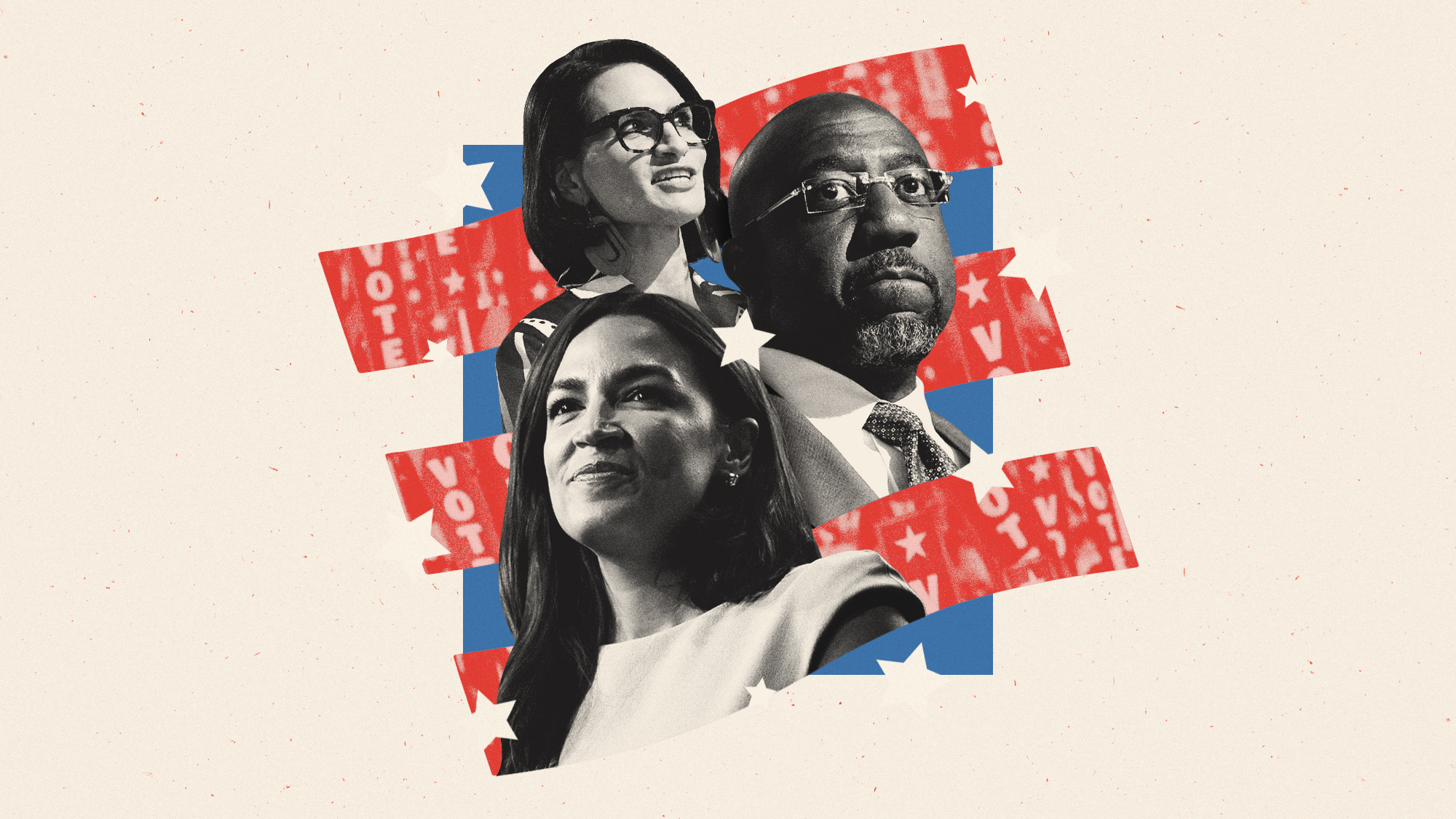What did the Democratic National Convention signal about the future of the party?
The three-day assembly was more than just a coronation for presidential nominee Kamala Harris — it was a statement about the where the Democratic party sees itself going next


A free daily email with the biggest news stories of the day – and the best features from TheWeek.com
You are now subscribed
Your newsletter sign-up was successful
What is a national political convention? Is it a procedural requisite at the end of a long nominating process? Televised pageantry designed to catch eyeballs and boost morale among the rank and file? A declaration of clear, articulated principles around which the party can rally for the coming months until polls close in November? In varying degrees, the answer to all of the above is: "yes."
While events like the recently concluded Democratic National Convention are overwhelmingly focused on the immediate march toward Election Day, they are also statements about the party's future beyond this particular election cycle. From speaker selection to prime-time scheduling, every second of the convention is as much a forecast of what's next as a reflection of the current zeitgeist. Consider the 2004 Democratic National Convention in Boston, where a largely unknown state senator from Illinois spoke just 2,297 words in a 17-minute speech that turned him into a national icon. Four years later, Barack Obama would be elected president of the United States.
If this is truly the election that decides the future of the country, as both parties insist, then what can last week's DNC tell us about what — and who — the Democrats want us to focus on after November?
The Week
Escape your echo chamber. Get the facts behind the news, plus analysis from multiple perspectives.

Sign up for The Week's Free Newsletters
From our morning news briefing to a weekly Good News Newsletter, get the best of The Week delivered directly to your inbox.
From our morning news briefing to a weekly Good News Newsletter, get the best of The Week delivered directly to your inbox.
What did the commentators say?
In spite of the undeniable gravitational pull of "high-profile figures" like Sen. Bernie Sanders (I-Vt.) and Hillary Clinton, many convention attendees were "just as excited to see the pipeline of up-and-comers poised to rise to the highest levels of politics," USA Today said. To the extent that there was a coherent theme in the "din of contending voices at the DNC," said The Nation, it was that the "future of the Democratic Party," embodied by Rep. Alexandria Ocasio-Cortez (D-N.Y.) and Sen. Raphael Warnock (Ga.), is "emerging before our eyes." Minnesota Lt. Gov. Peggy Flanagan, who helped gavel in the convention as one of the event's four co-chairs, has similarly been "in the spotlight," said The New York Times, since Kamala Harris' selection of Gov. Tim Walz as her running mate "instantly raised the profile of Flanagan."
Perhaps paradoxically, Ocasio-Cortez "got the crowd fired up in a speech that was, for the most part, pretty uncontroversial," Brookings said. That uncontroversial-ness is key, given she had "been largely dismissed as a future leader because of her association with the far left of the party." Instead, a "more moderate AOC might be someone to watch." The speech was the moment Ocasio-Cortez "completed her journey from left-wing 'Squad' provocateur — and a thorn in the side to her party's leaders in the past — to being a bona fide Democratic establishment star," agreed The Washington Post.
Beyond highlighting rising stars and the next generation of potential candidates occupying the party's deepening bench of talent, this year's DNC was a temporal nexus of sorts, both forward-looking and reverential to the past. "Is it possible to be nostalgic for the future?," asked The Washington Post's style section. "I can see echoes of '08, with the whole new energy of this moment," Wisconsin Democrats chair Ben Wikler said to the paper.
That invocation of Obama's legacy as having galvanized the party as its orator-in-chief was a common theme at this year's convention, where "Democrats seeking to approximate Obama's breakout convention speech in 2004 worked delegate breakfasts, hotel ballrooms and, on Wednesday, the convention stage," Politico said. This "newer generation of Democratic leaders" like Transportation Secretary Pete Buttigieg and Michigan Gov. Gretchen Whitmer have focused on pursuing Obama's "same goals of broadening the party's appeal and recentering its focus on the working class and key economic issues." The Democrats featured at the convention are an "amazing bench" of talent, said Democratic pollster John Anzalone to the outlet.
A free daily email with the biggest news stories of the day – and the best features from TheWeek.com
What next?
"If there is one state delegation that appears to be getting the most attention from the presidential wannabes, it's South Carolina," NBC's Chuck Todd said. "It seems pretty clear that South Carolina will be a future early-state power player."
"While the 2028 wannabes aren't getting the attention they would have gotten had this been Biden's convention," Todd cautioned, "they are certainly following an old scouting motto: 'Be prepared.'"
Rafi Schwartz has worked as a politics writer at The Week since 2022, where he covers elections, Congress and the White House. He was previously a contributing writer with Mic focusing largely on politics, a senior writer with Splinter News, a staff writer for Fusion's news lab, and the managing editor of Heeb Magazine, a Jewish life and culture publication. Rafi's work has appeared in Rolling Stone, GOOD and The Forward, among others.
